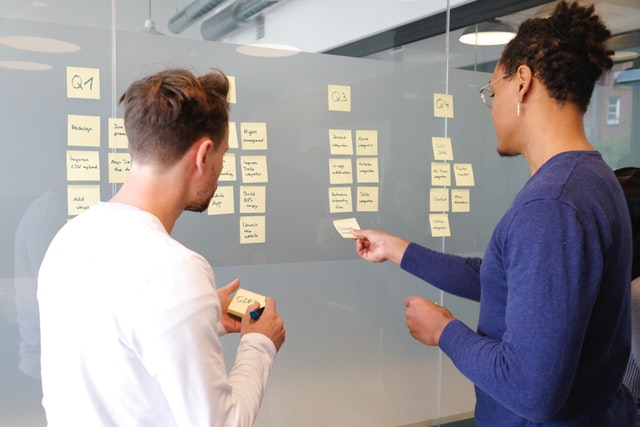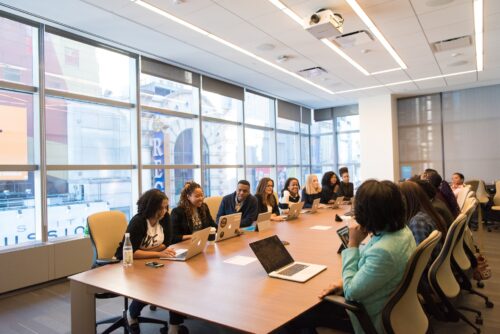Workplace resilience training is crucial for employees in South Australia to thrive in today’s fast-paced and ever-changing work environment. Resilience refers to the ability to bounce back from setbacks, adapt to change, and maintain a positive mindset in the face of challenges. This kind of training equips employees with the necessary skills and strategies to effectively cope with stress, pressure, and adversity.
Taking a Resilient Approach to the Workplace
People at our company are driven by our fast-paced culture to work hard, meet tight deadlines, maintain professional relationships, and stay connected through mobile devices. It is also possible for this pace to lead to stress and burnout. In order to successfully navigate through these challenges, it is necessary to develop skills and strategies. It is important for employees to develop a resilience mindset in order to cope with stress, a competitive job market, conflict in the workplace, and other challenges that may arise at work. As a result of work being the most significant source of stress in employees’ lives, improving resilience is crucial. It is possible for employers in South Australia to reduce the number of psychological stress claims by investing in their employees.
Take on major challenges and bounce back
A resilient person is one who is able to bounce back from major challenges and thrive in the aftermath. Often, it is put to the test by stress factors that are common in daily life and by tragedies and traumas that occur in life. Obviously, stress isn’t the only thing that affects a person’s resilience, but how they handle it is a good indicator.
It is also important to maintain resilience in order to be well-adjusted. It has become increasingly evident that employers are required to provide mental health and well-being services, support, and resources.
In the workplace, resilience makes a difference
In addition to building and improving workplace culture and resilience, employers are also trying to deal with workplace stress. Taking care of work stress helps employers build a resilient workforce, employees handle work stress better, and employees develop protective factors. The benefits don’t stop there:
- The more resilient an employee is, the more happy they are at work, the more committed they are to the organisation and the more engaged they are.
- Enhancing resilience can improve self-esteem, self-control, a sense of purpose, employee relationships, and self-esteem.
- Increased productivity pays off for employers.
It’s not surprising that employers are trying to build resilience in their workforce to help employees deal with stress at work.
During times of high stress, what is essential for resilience?
A variety of factors contribute to workplace stress, including long hours, job strain, shift work, job insecurity, lack of control, peer conflict, and low social support. Here are some facts to consider:
- The number one stressor in the lives of 65% of Australians is their job.
- A stressful workplace can increase depression or anxiety risk.
- People’s mental and physical health can suffer when they are working in a stressful environment.
- Employees who misuse alcohol or drugs are more likely to experience high levels of stress.
- Australian workers die prematurely as a result of unhealthy and challenging work environments.
It has been demonstrated that initiatives and programs designed to promote a resilient and psychologically healthy workplace have positive impacts on productivity, healthcare costs, absenteeism, and turnover of South Australian employees.
The following tips are for employers to consider
Commitment is required for the creation of a resilient workforce and a more healthy working environment. Building a more resilient workforce involves considering the following factors:
Understand your employees by taking the time to listen to them
Organisations that are resilient have resilient employees. The best people can overcome obstacles and distractions if they’re motivated, supported, and equipped. Learn what stressors affect employees the most at work. If you are looking to improve resilience and reduce stress, ask your Employee Assistance Program vendor how they can assist you. You can also ask employees anonymous questions related to stress and resilience or complete anonymous work satisfaction surveys. Including this in your Risk Register for Psychosocial Hazards will help you to stay on top of things. You can build a healthy work culture and build resilience once you have data and know how stress affects you and other factors.
Develop a leadership team that is engaged
Leadership alignment is necessary for a resilient workplace. When the organisation’s leaders are involved in resilience programs, employees are more likely to participate. Allocating resources to strengthen workplace resilience starts with establishing priorities, setting goals, and allocating resources. Also, ensuring that the organisation’s commitment to resilience is clearly and decisively communicated. Providing survey results to leaders helps build a strong business case if the leaders aren’t already onboard.
Developing a resilient mindset is the key to success
Resiliency training is increasingly being sought by employers for a good reason. Work engagement and job performance are elevated when resiliency training is implemented in a dynamic work environment. A number of innovative strategies are presented to improve employee health and the performance of the organisation.
Establishing a culture of resilience in the organisation
It is important to understand the layers of organisational culture. A foundation for this philosophy is empowerment, purpose, trust, and accountability. Support for employees and a commitment to addressing resilience are key to building or improving a resilient culture. Train managers how to support the mental wellbeing of their staff by promoting an open, trusting management style. As a commitment, it is not enough to make a declaration. In order to be effective, it must be implemented and communicated regularly.
Consider ways to improve the environment in which you work
The ability to be flexible is important no matter whether you work in a physical office or a virtual one. The following suggestions can help improve the work environment:
- Let people do their thing, and let them be autonomous whenever they can.
- By rewarding good performance, you can encourage good behaviour.
- Maintain good physical and mental health by providing access to services and support when necessary.
In some cases, employees require the consultation of a specialist due to physical or mental health concerns. In order to ensure that employees have access to health care, it is imperative that a process for accessing health care is in place. Frequently inform the public about resources available. How familiar are you with the resources available to you in South Australia?
Provide flexibility in the schedule of your employees
In order to improve the working environment, employers should provide flexible working schedules and reduce the number of late nights spent at work. To ensure that employees remain rested, employers should be flexible in offering adjustable shift rotations if shift work is required.
Ensure that your work expectations are reasonable
Ensure that work expectations and hours are clearly defined in your organisation’s policies. By pushing employees to increase workloads, the desire to succeed can undermine productivity and results.
Developing resilient workplace cultures is key to success in the new world of work. Diversity and inclusion are essential for attracting and retaining top talent. In addition, it should be an environment that promotes positive mental health and support for all employees.
Workplace learning plays an important role in the success of a company
The leadership in an organisation is responsible for creating a healthy work environment and a resilient workforce. Your leaders have to be empowered to transform your workplace culture to make it healthy and productive.
It’s important for leaders to have policies and frameworks that allow them to help employees who need it. A good training program can help you develop your leadership skills, as well as shape their attitudes and behaviour. There is no doubt that workplace learning programs are essential if we want to enable growth and build a culture of resilience in the workplace.
WHS and Training Compliance Solution helps build resilient workforces and sets organisations up for longterm, sustainable success by strategically shaping attitudes and behaviours.
The Workplace Resilience Program is an example of such a program that we are offering in South Australia. A resilient mindset training program is an awareness program focused on improving productivity with individual progress. With microlearning, people can learn at their own pace, so they are more likely to retain information.
We are your partner in fostering a resilient workforce in South Australia with training programs ranging from WHS to core leadership skills and mental health awareness. We have a range of learning programs you can explore, so get in touch with us today!
We can travel across South Australia to deliver our courses. In addition to classroom courses, we also offer eLearning.
Workplace resilience training in South Australia is an essential program that aims to equip employees with the skills and mindset needed to overcome challenges and thrive in a dynamic work environment. Resilience is the ability to bounce back from setbacks, adapt to change, and maintain a positive outlook amidst adversity. In today’s fast-paced and competitive business landscape, resilience has become a crucial trait for individuals and organizations alike. By investing in workplace resilience training, companies in South Australia can enhance the well-being and productivity of their employees, leading to improved overall performance.
With workplace resilience training in South Australia, employees are provided with practical tools and strategies to build their resilience. These training programs typically involve workshops, interactive activities, and discussions that focus on various aspects of resilience, such as stress management, emotional intelligence, problem-solving, and effective communication. Through these training sessions, participants gain a deeper understanding of their own strengths and weaknesses, develop coping mechanisms for stress and pressure, and learn how to maintain a positive mindset even in challenging situations.
The benefits of workplace resilience training in South Australia are numerous. Firstly, it helps employees develop a greater sense of self-awareness and self-confidence, enabling them to approach tasks and challenges with a positive attitude. This leads to higher levels of job satisfaction and motivation. Secondly, resilient employees are better equipped to handle stress and pressure, resulting in decreased absenteeism and increased productivity. Moreover, workplace resilience training fosters a supportive and collaborative work culture, where individuals are more likely to offer support and help each other during difficult times. Overall, investing in workplace resilience training in South Australia is an investment in the well-being and success of both employees and the organisation as a whole.












